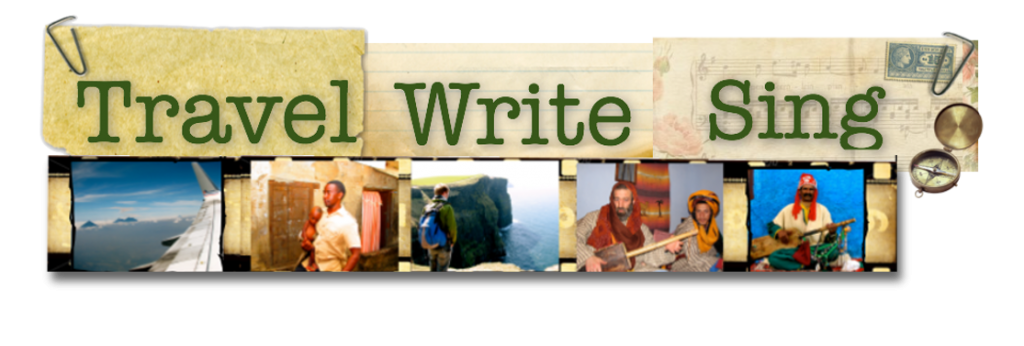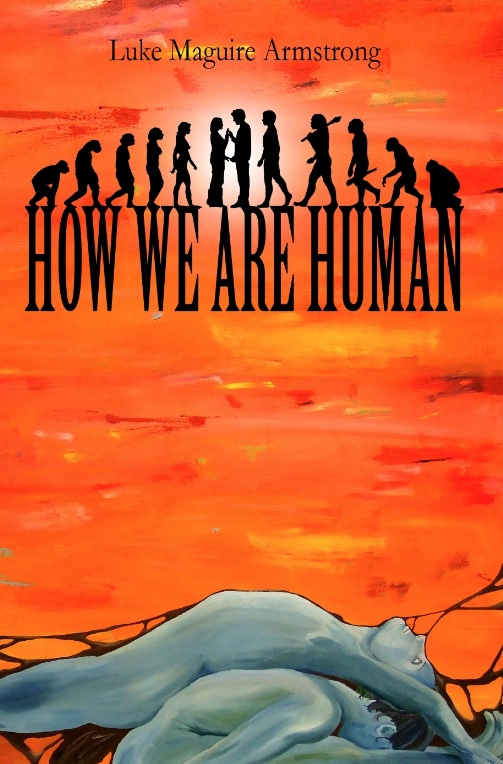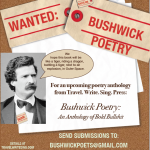Dear Everyone,
I’m super jacked to announce to all you alls that my second book of poetry, How We Are Human, was released last week. I’m really happy with how it came together. From setbacks that included lost work from a stolen laptop this past March, to my impactful ability to procrastinate, it feels great that it finally out there.
So far a lot of people have been praising the cover, which was done by my friend Andrea C. Johnson. I’ve seen this painting in her apartment since college, and it always has stopped me in my tracks. It’s so powerful, and awesome, and very orange. I’ve always been a big fan of her art, so I’m honored to be able to have it gracing the cover of my book (she also did the cover design for my last book).
The release of How We Are Human coincides with my moving to New York City, a place where you actually can run into other poets in bars and on the street. All I can say, is, holy crap muffins can poets drink! This city is overflowing with my kind of people.
We’ve all heard it said that everyone has some sort of agenda they are peddling. I certainly do. To people that read or write poetry, its importance and wonderfulness doesn’t need to be sold to them. So while I hope other poetically minded people read my book, my roaring goal behind poetry in general and this book specifically is to get it into the hands of people who’ve passed on it. It’s why I’m a big fan of movements like The Guerilla Poetics Project. I think poetry as presented in high school in a way that turns more people off to it then turns them on. This is a problem, and a lot of great contemporary poets and their movements are working on the solution. I hope in my lifetime I’ll see it drip more into the mainstream, instead of shriveling away on the sidelines. My Forward to How We Are Human explains my thoughts on this better. So here it is, for all of you poetry lovers and haters out there.
Forward to How We Are Human
THEM’S POETIC FIGHTING WORDS
“I don’t like poetry.” Since publishing my first book of poetry two years ago, people sometimes find it necessary to point this out to me. It’s like telling a chef you don’t like food.
Other times, people find out I’m an author and ask, “Oh, what kind of book did you write?”
“A poetry book,” I am obligated to respond, as I watch their spark of interest fizzle into a cloud of dread. Then, as they try to run away, I grab them by the wrist and handcuff them to a pipe until I’ve explained a thing or two about poetry.
A THING OR TWO ABOUT POETRY
Not everyone runs away. Sometimes people stay and say things like, “Oh that’s nice,” as one would speak to a seven-year-old who has just found a cow bone he is showing his parents, who seriously, don’t give a crap about his bovine femur.
Once in a while people are blatantly honest (mean) and they tell me straight up, “I don’t read poetry.” Or, “I don’t like poetry.” Or the worst, “I hate poetry,” putting poetry on par with Hitler and root canals.
BUT HERE’S THE THING
I don’t really like poetry either. Or at least, I dislike quite a bit of it. I don’t like poetry that complains, seeks pity, is annoying or makes me search for the point like deriving ‘x’ in algebra. I, for instance, dislike all poems about dolphins.
I’ve tried to get through Shakespeare sonnets, but I find that every time I arrive at about the third line, I start feeling like I am not only wasting my time, but that if I had a choice between finishing the sonnet or stabbing my thigh with a fork, I would opt for the fork.
So when people say, “I don’t like poetry,” what they are really saying is, “I don’t like the poetry I have read so far.” Which is fine and fair, and on the same level as saying, “I don’t like Mexican food.” But to flat out say, “I don’t like food” is unacceptable. It makes the speaker seem like a malnourished, unfeeling cyborg. And I’ve never met a cyborg who was happy or found true love. They never get invited to birthday parties.
SO COME ON HATER, MAYBE YOU DO LIKE SOME KINDS OF POETRY
Poetry is anything and everything that you want it to be. And very often, everything you need it to be.
Poetry can be funny, it can be serious, it can teach you something, it can make you laugh, or cry, or vomit, or shout, or dance an Irish jig (I’ve witnessed this). It can take you to foreign countries, introduce you to new cultures, new people, new ideas. There’s even a poem in this book about a bear defecating in the woods. What more could you want?
TOGETHER FOR THE POETIC REVOLUTION
I believe that poetry is due for a renaissance. Why? Because, POETRY IS SHORT AND YOUR LIFE IS A BUSTLING WHIRLWIND OF BUSYNESS!
As you read this someone is poking you on Facebook, you’re being mentioned on Twitter, emails are piling up, the UPS man is knocking, you’re missing your favorite TV show, your boss is calling (he wants you to work Saturday), your girlfriend is breaking up with you (she thinks you’re gay because of all the poetry), your dog needs to be let out to do his duties, you have deadlines to make, dishes to wash, laundry to do, bills to pay, plants to water, people to poke back, ETC! AD INFINITUM!
And all the while you have a stack of books on your nightstand that you haven’t read because you don’t have time. Well Sonny Boy and Sally Girl, guess what? This makes poetry the medium for you. With poetry you can have a complete, immersive experience in the time it takes to floss or bake a grasshopper in your microwave oven (30 seconds).
You can read it on the subway. While you brush your teeth. Throw a volume of poetry on top of your toilet. You can, read them on a train, or in the rain, or in a tree, in a box or with a fox*.
POETIC HABITS DIE HARD
The poems in this book have been written since the publication of iPoems for the Dolphins to Click Home About. Loosely, it is an exploration of what makes us human. Whether it’s our laughter, our love, our striving, our search for meaning and belonging, or the search for our car keys that we are positive we left on the kitchen counter; I hope you enjoy this book, hope you find bits of yourself in here. Unless you’re an unfeeling cyborg, in which case, don’t you dare show up at my birthday party.
*The author of this book assumes no responsibility for bodily harm or rabies that could occur should you decide to read poetry with a fox. Remember, foxes are wild animals and most want to bite you. Read poetry with foxes at your own risk.







